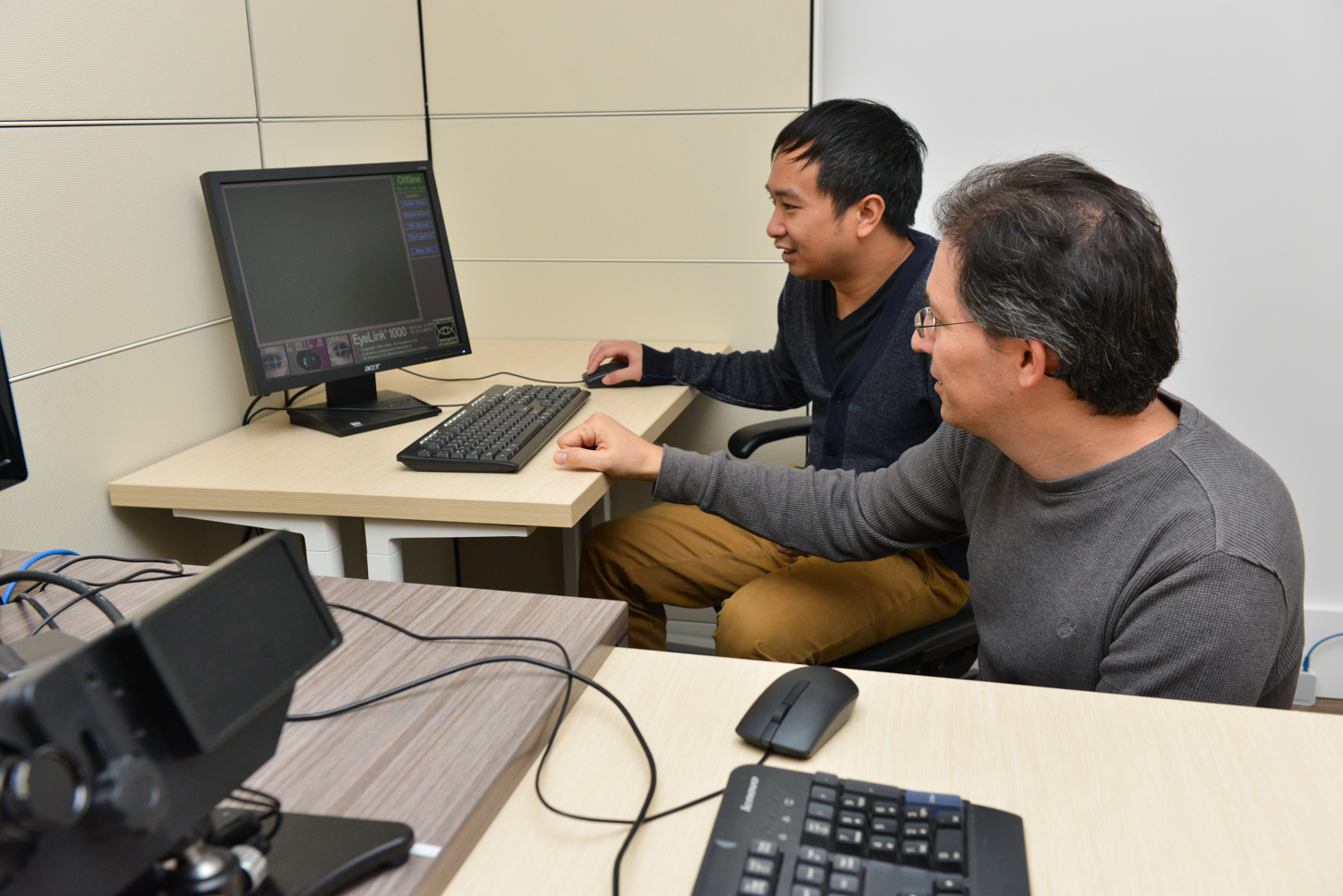Are you a student interested in hands on research with world-class faculty? No matter what your interests, fascinating research is happening each and every day at Crean - and you can be a part of it!
- Follow
»Faculty and Student Research
Psychology Labs
Early Human and Lifespan Development Program
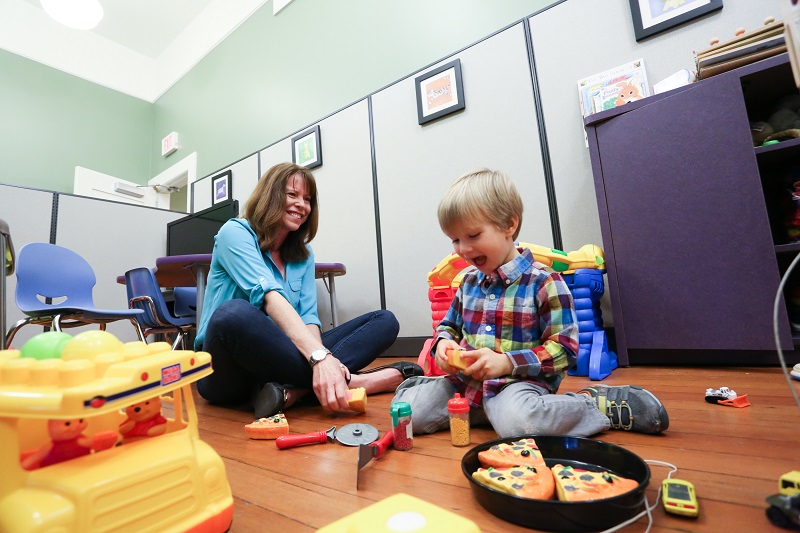 |
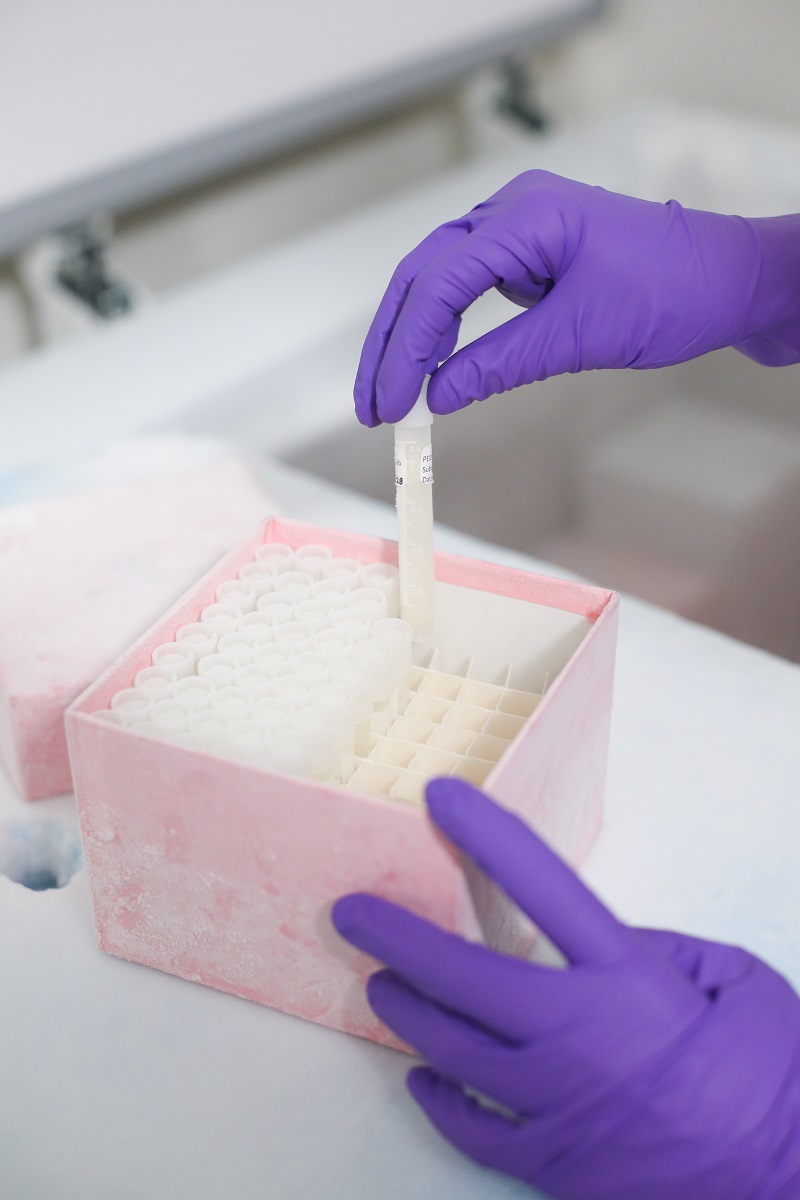 |
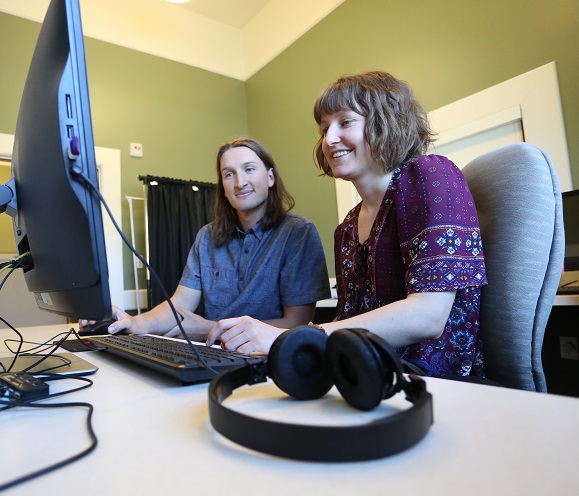 |
The goal of the Chapman Early Human and Lifespan Development Program is to advance
understanding of the role of the perinatal period in maternal and child health. Led
by Dr. Laura Glynn, this laboratory examines the interplay between biological, psychosocial
and behavioral processes in human pregnancy. The interdisciplinary research team
focuses on questions such as: Why do women give birth to babies that are born early
or small?; How does fetal experience shape the health and development of infants and
children?; Does the prenatal period represent a critical period of neurological development,
not only for the fetus, but for the mother too?
Dr. Laura Glynn
Location: 544 N. Cypress Avenue
Healthy Aging Lab (HAL)
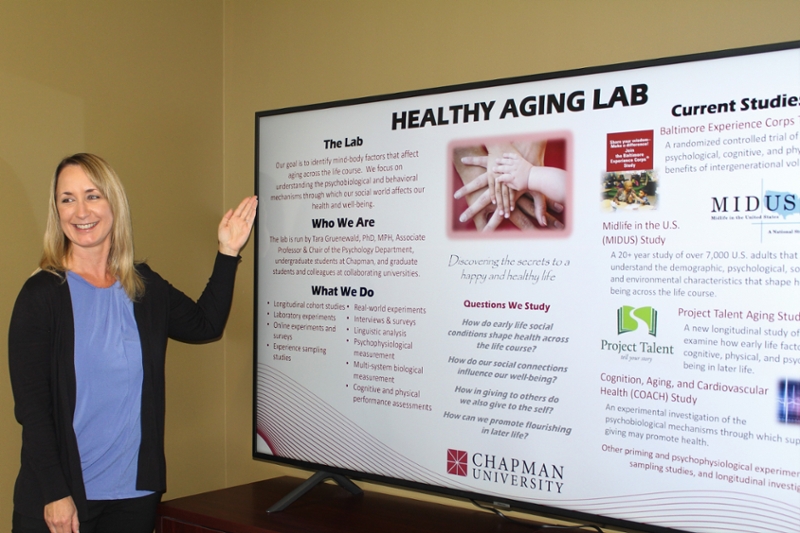 |
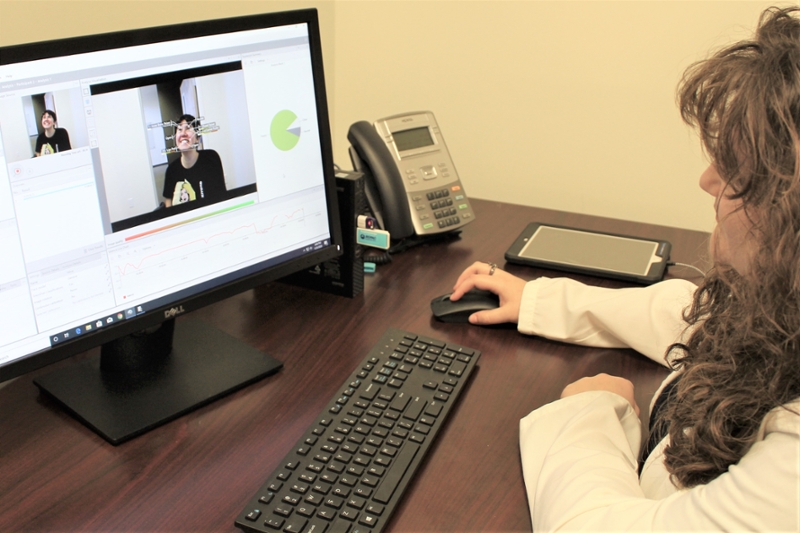 |
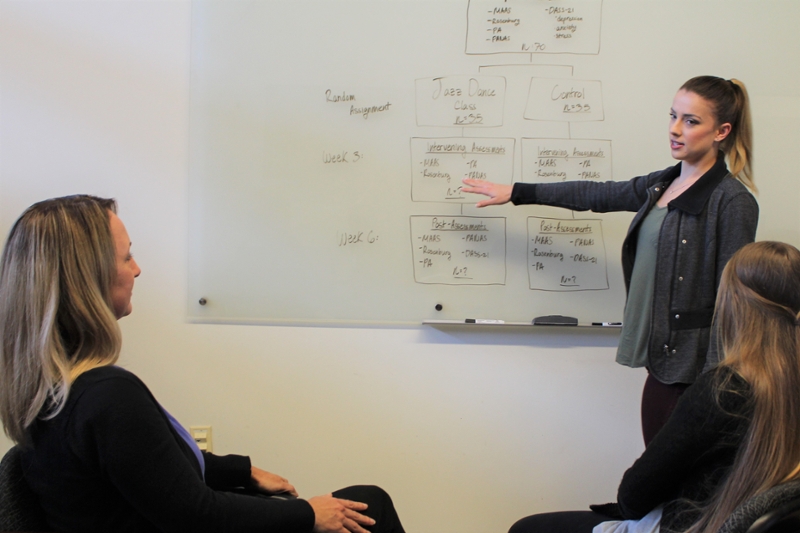 |
Dr. Tara Gruenewald is an Associate Professor and Chair of Psychology who joined the Chapman faculty in the Fall of 2017. Tara is a social and health psychologist with additional postdoctoral training in Public Health and Gerontology. Her research focuses on the social and psychological factors which shape cognitive and physical functioning, physiology, and mental and physical health across the life course. Current foci include: (1) Identification of the psychological, social, behavioral, and biological pathways which underlie socieoeconomic gradients in functioning and health, (2) The role of perceptions of generativity in shaping health and functioning in later life, and (3) Examination of health correlates of generative activity and intergenerational civic activity engagement. Her research utilizes a wide array of designs including longitudinal cohort studies, experience sampling investigations, and experiments in the lab and in natural environments, as well as diverse data collection methods.
Dr. Tara GruenewaldLocation: Crean Hall, Room 121
Culture, Evolution, and Behavior Laboratory
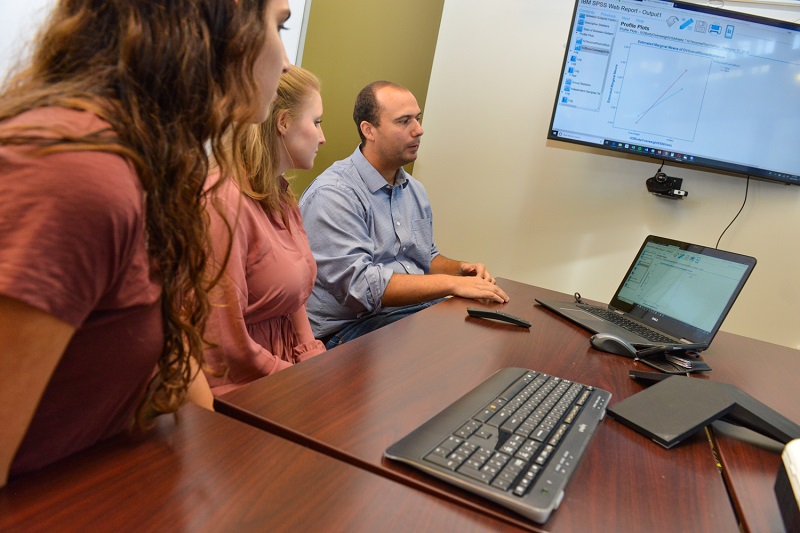 |
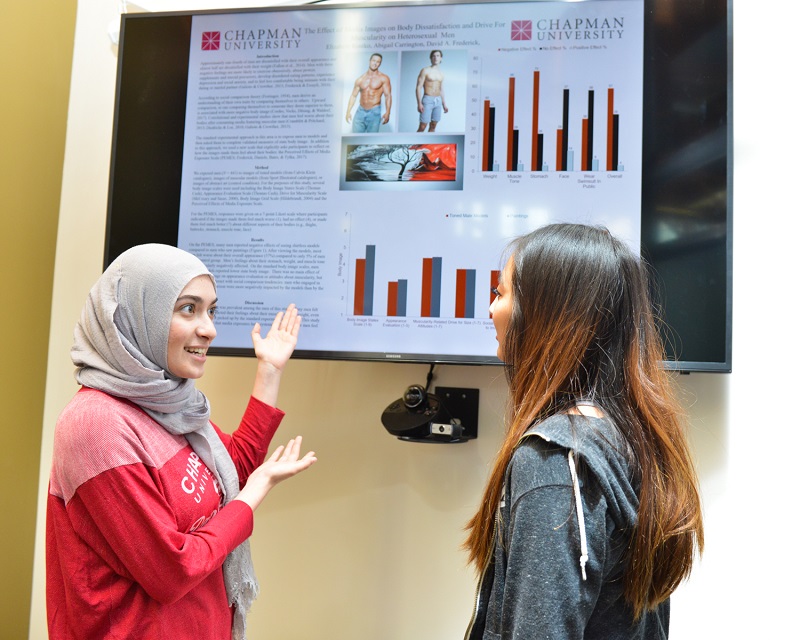 |
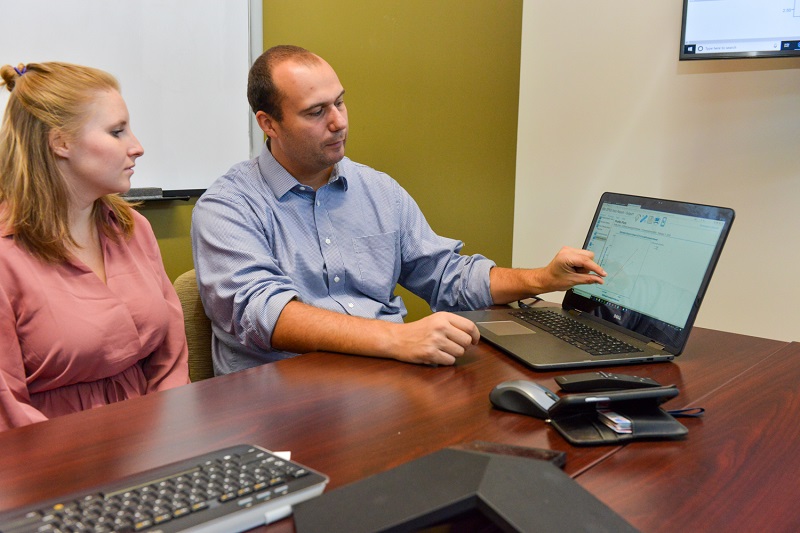 |
Dr. David Frederick's program of research investigates how mass media, interpersonal relationships, and biological factors shape body image dissatisfaction, attraction, health behaviors, attitudes towards weight, self-regulation, and relationship stability among gay, lesbian, and heterosexual men and women. His work investigates how these experiences differ for ethnic minority versus majority men and women.
To examine these issues, Dr. Frederick conducts and analyzes large-scale national survey studies, directs cross-cultural research studies, assesses biological factors such as hormone levels, and conducts experimental studies. He currently supervises graduate and undergraduate students conducting research sex and sexual orientation differences in jealousy and mate preferences, on the effects of exposure to news media on support for different obesity-related public policies, and sex and sexual orientation differences in body dissatisfaction.
Students interested in working with Dr. Frederick can contact him at dfrederi@chapman.edu.
Dr. David Frederick
Location: Crean Hall, Room 132B
Health & Well-Being Laboratory
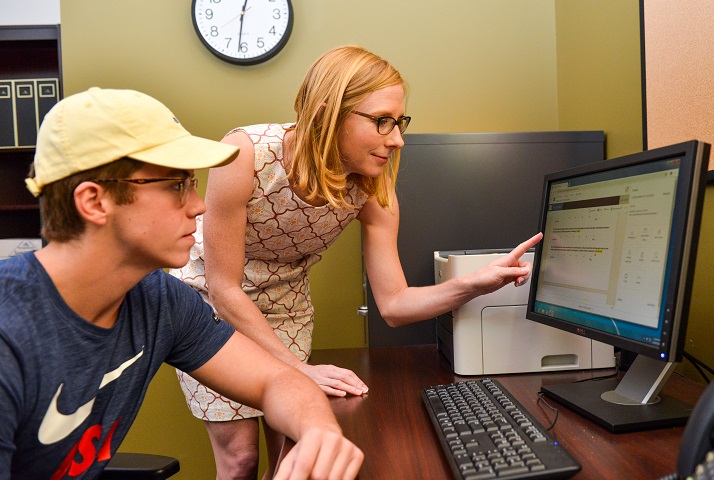 |
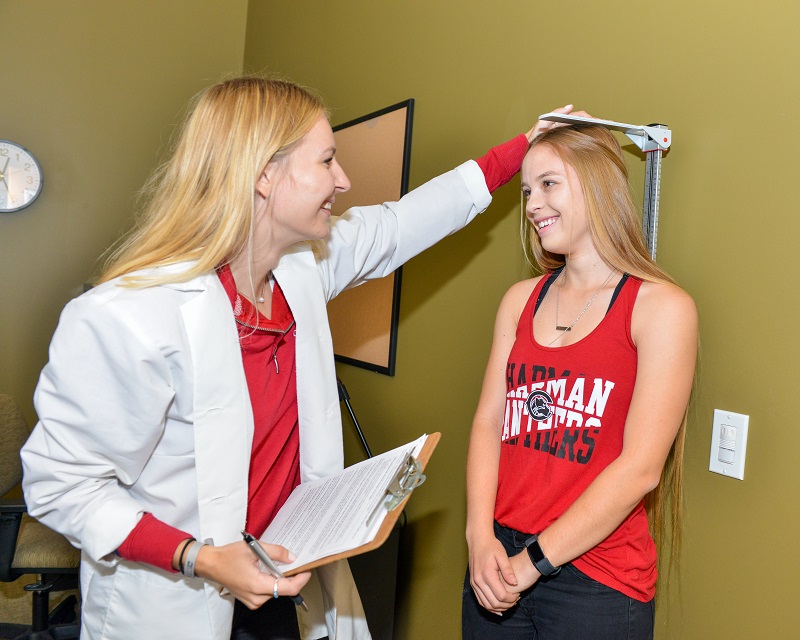 |
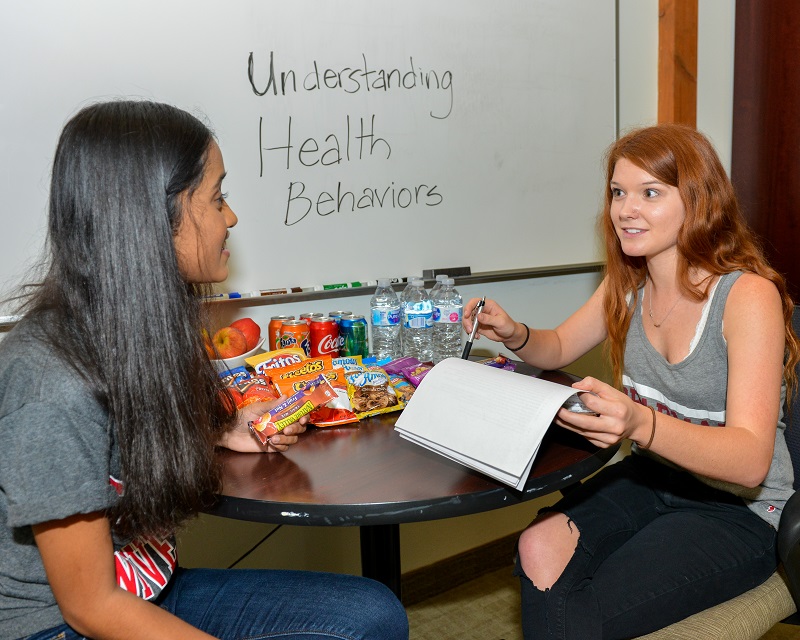 |
Dr. Boehm’s research indicates that initially healthy people who are optimistic and satisfied have a reduced risk for heart attacks more than five years later, compared with individuals who are less optimistic and less satisfied. Research in the HWB Laboratory uses both longitudinal and experimental methodologies to further understand the association between positive psychological characteristics and improved cardiovascular outcomes. In particular, the HWB Laboratory examines how positive psychological characteristics are associated with the behavioral and biological processes that are relevant for cardiovascular health including physical activity, diet, blood pressure, and lipids. For example, Dr. Boehm has found that more optimistic people tend to have healthier healthy levels of high-density lipoprotein cholesterol and triglycerides. Additional work from the HWB Laboratory suggests that positive psychological characteristics are also associated with reduced risk of smoking and increased likelihood of exercising.
The ultimate goal of the laboratory’s research is to identify positive psychological characteristics that contribute to healthy trajectories of cardiovascular functioning across the lifespan, with a specific focus on underlying behavioral and biological pathways.
Dr. Julia Boehm
Location: Crean Hall, Room 132
Website: http://sites.chapman.edu/hwblab/
Complex Adaptive Systems in Psychological Research (CASPR) Lab
Dr. David Pincus’s program of research focuses on understanding biopsychosocial resilience using models and methods from a nonlinear dynamical systems theory.
Recent empirical work in the lab includes: (1) Measuring shifts in behavioral flexibility associated with severe and persistent self-injurious behaviors; (2) Measuring the effects of experimentally induced psychological conflict on social resilience; (3) Measuring the relationships between fractal personality structure and broadband psychopathology; and (4) Modeling sexual identity integration processes underlying psychological resilience in gay adolescent males. Future lines of research that are under development include: (a) Measuring resilience in as shifts to nonlinear coupling in biopsychosocial networks for women across the menopausal transition; (b) Testing an approach to psychotherapy based in complex adaptive systems theory: Experiential Balancing Therapy; (c) examining the role of the imagination in the experience of pain and pain relief.
More information on Dr. Pincus's recent work can be viewed at his faculty website.
Students interested in working with Dr. Pincus can contact him directly.
Dr. David Pincus
Location: Crean Hall, Room 132J
Cognitive Neuroscience of Perception, Volition, and Consciousness
Dr. Aaron Schurger's research focuses on the neural signatures of subjective experience and the neural antecedents of spontaneous voluntary action. In 2013 Schurger was awarded the William James Prize from the Association for the Scientific Study of Consciousness (ASSC) and in 2015 was awarded the BMI-Kaloy prize from the Kaloy Foundation for his work on the influence of spontaneous fluctuations in brain activity on self-initiated movement. Schurger’s work on conscious perception has focused on how the formation of stable patterns of brain activity might play a role in consolidating and transmitting neural information and might serve as a signature of conscious perception. Schurger uses a variety of techniques in his research including behavioral psychophysics, neuroimaging, computational modeling, machine learning, and brain-computer interfaces. Current ongoing research projects include:
- Social cognition and face perception in autism.
- The threshold of subjective visual perception.
- Triangulating the neural correlates of consciousness.
- The time course of neural activity predictive of impending movement.
- Transient stabilization of cortical neural activity: the role of the locus ceruleus via pupillometry.
- The role of mental imagery in spontaneous voluntary action.
- And more…
Dr. Aaron Schurger
Location: 561 N Glassell Street, Orange, CA
Affect Regulation and Health Lab
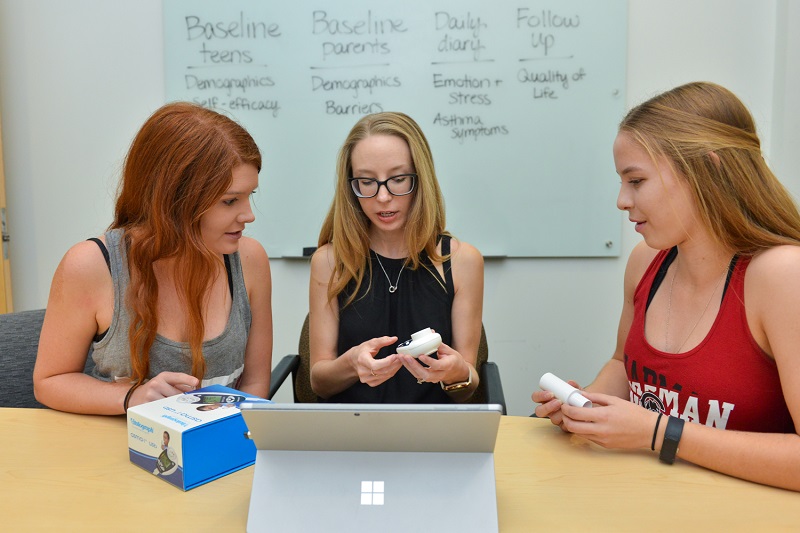 |
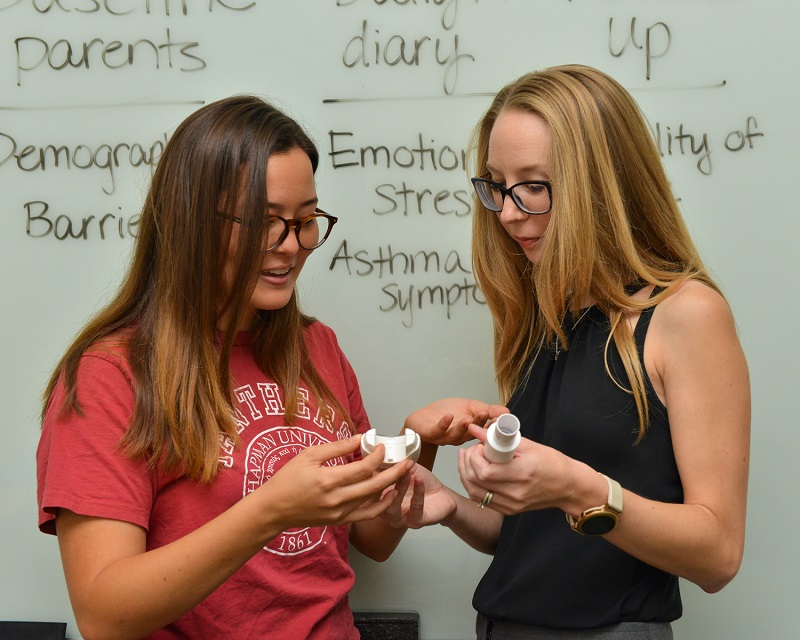 |
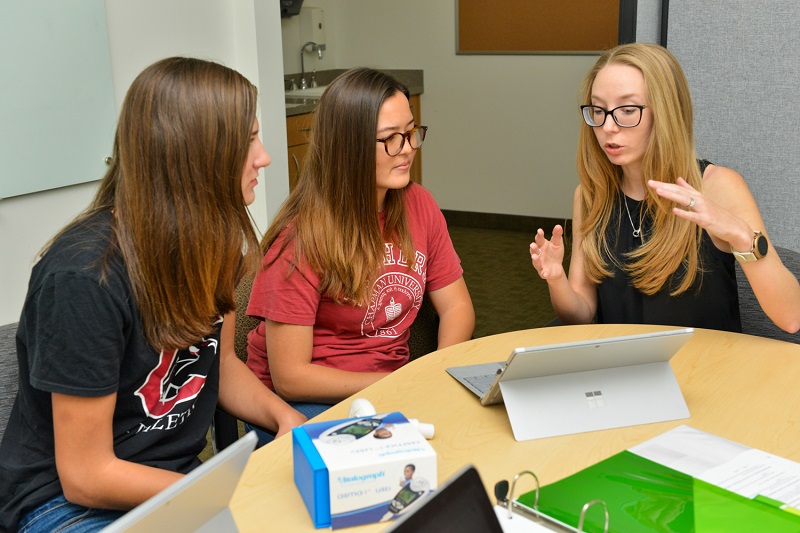 |
The Affect Regulation and Health Lab explores questions related to how emotions change over time. Taking both a basic and translational science approach, this lab tests questions such as: What do patterns of emotion variability look like? How do we measure changes in emotion over time? What are the health implications of emotion variability? How can we help others manage their emotions over time through emotion regulation? How does emotion regulation skill development across the lifespan? To answer such questions, we have looked at how emotion variability is related to outcomes such as antibody response, depressive symptoms, and well-being. Because of the health implications of emotion variability and emotion regulation, this lab conducts research at the Children’s Hospital of Orange County (CHOC). The pediatric hospital setting is a particularly stressful place for children and caregivers. Therefore, at CHOC, we create and test emotion regulation strategies to help these populations cope during stress. For example, we teach parents to use emotion regulation strategies like distraction and reappraisal with children undergoing surgery and test the effectiveness of these strategies.
Dr. Brooke JenkinsLocation: Crean Hall, RM 127
Computational Neuroscience of Volition, Decision-Making, Consciousness, and Moral Choice
|
|
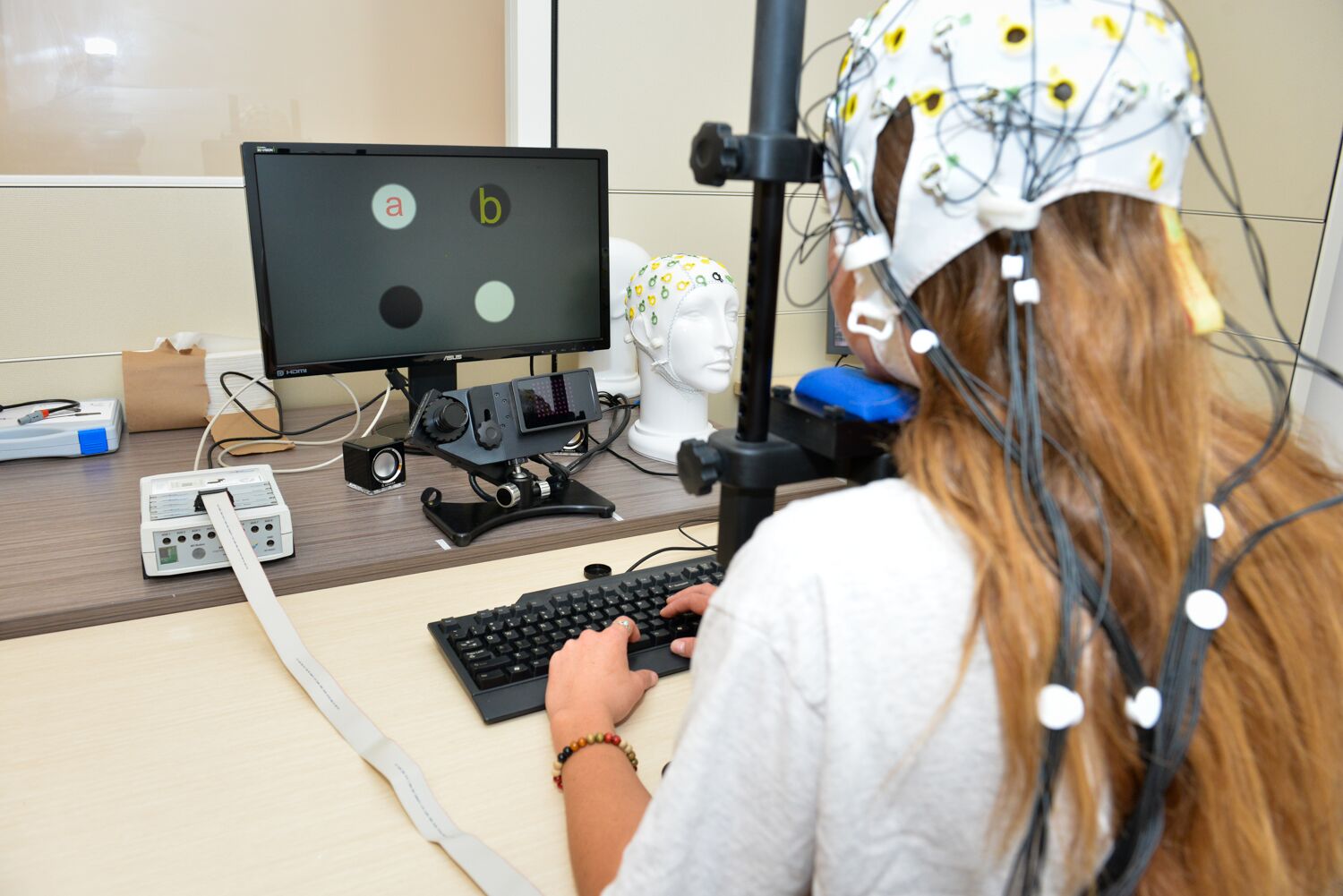 |
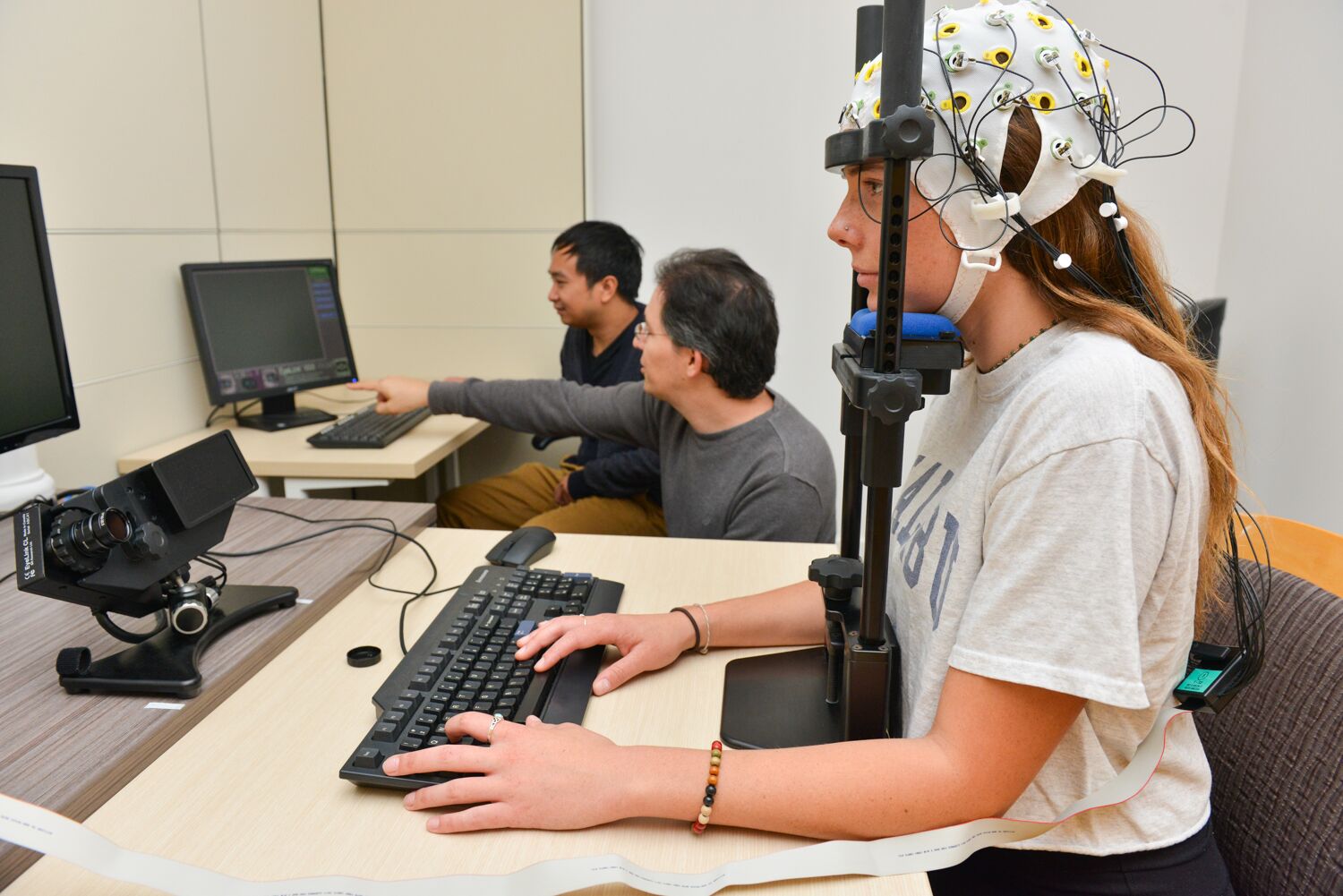 |
Uri Maoz is a faculty member in the Psychology Department at Chapman University. Using the tools of computational neuroscience, the Maoz Group carries out research at the intersection of volition, decision-making, and moral choice. Our methods range from online and behavioral studies, through virtual reality and motion capture, to real-time neuroimaging studies using machine-learning and computational modeling. Our goal is to develop a computational account of volition, with an emphasis on the decision-making processes that lead to voluntary action and on the role of consciousness in such processes. We are further interested in the legal, ethical, conceptual, and economic implications of this work.
Dr. Uri Maoz
Location: 561 N Glassell Street, Orange, CA
The Computational Analysis of Health Behavior Laboratory
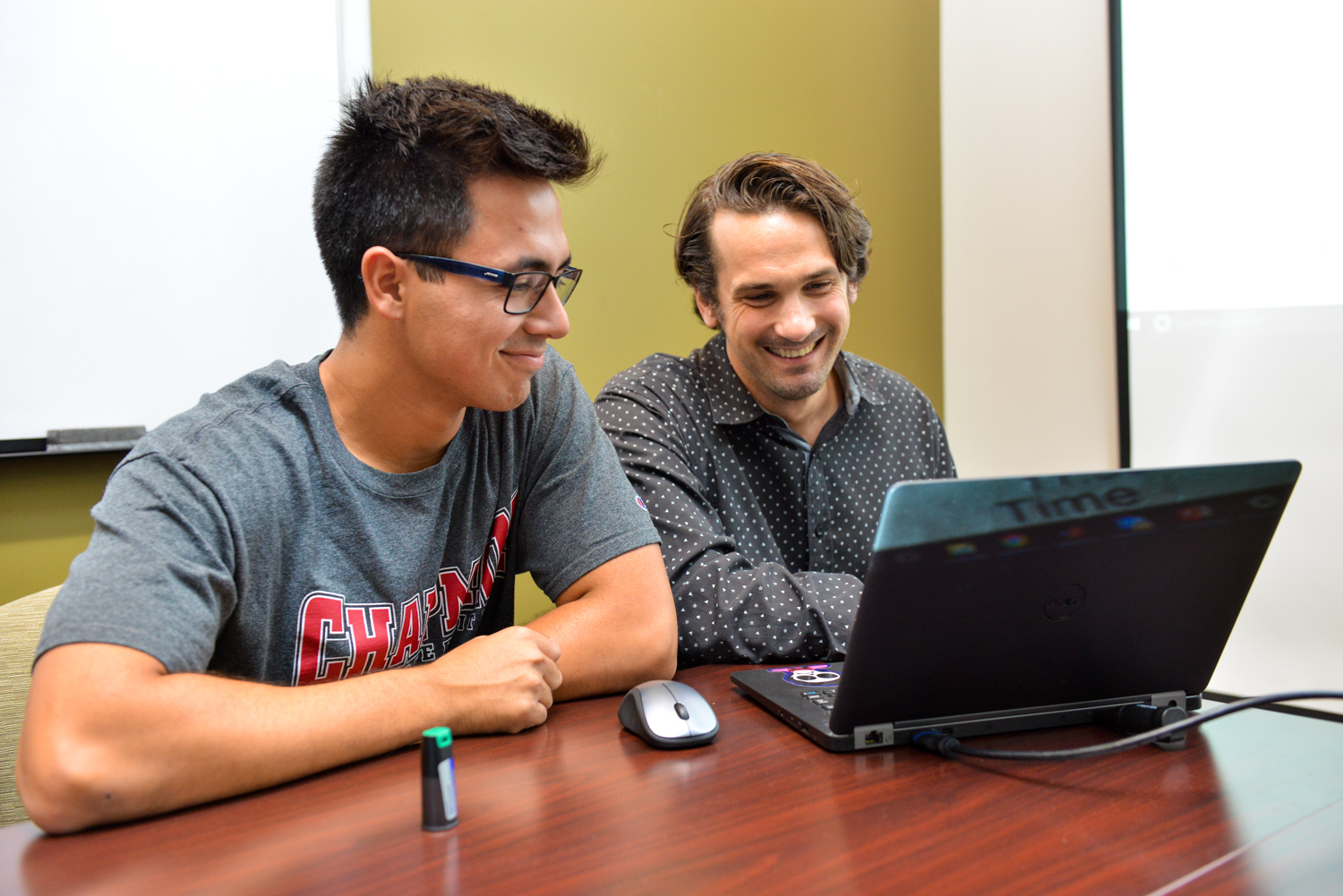 |
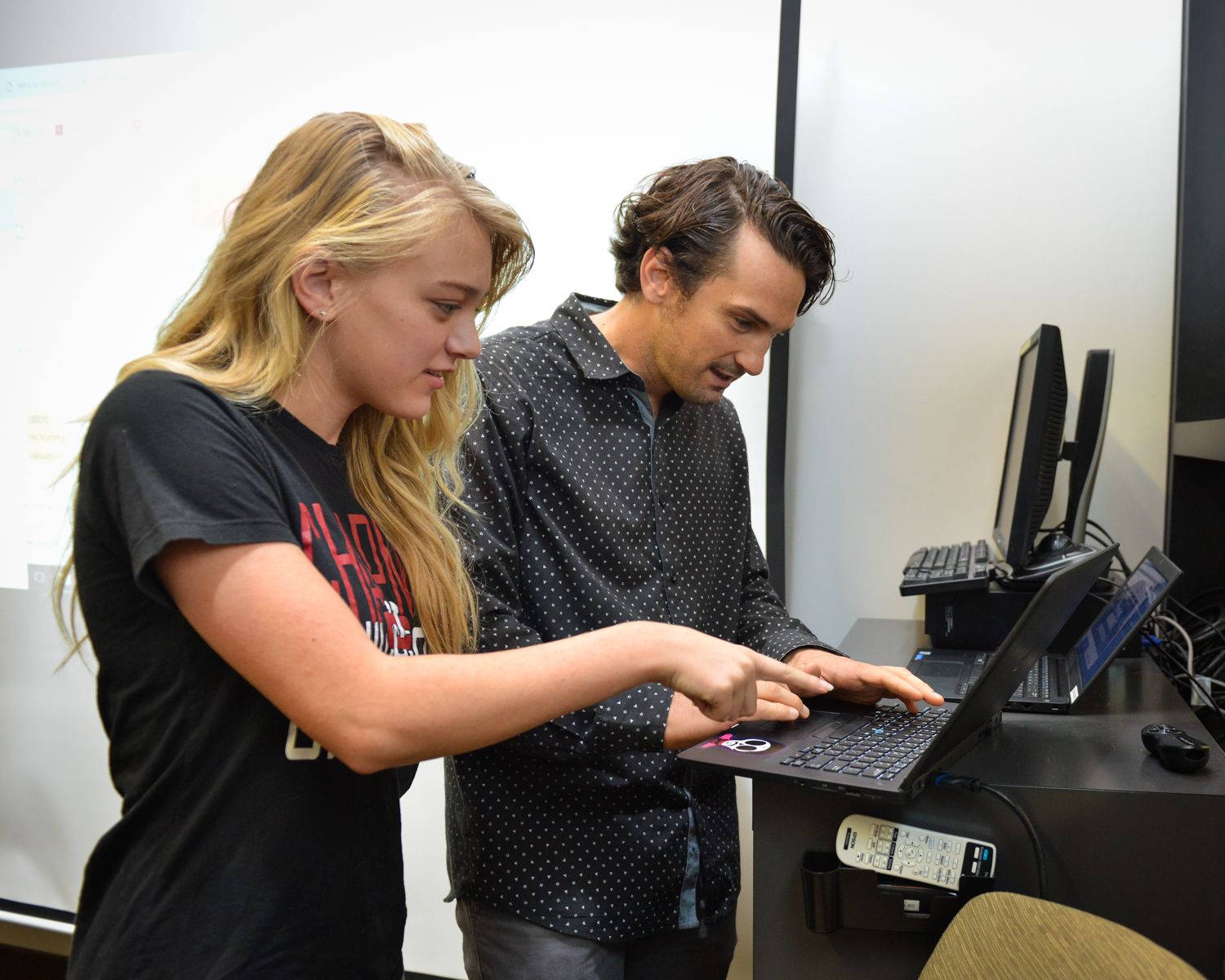 |
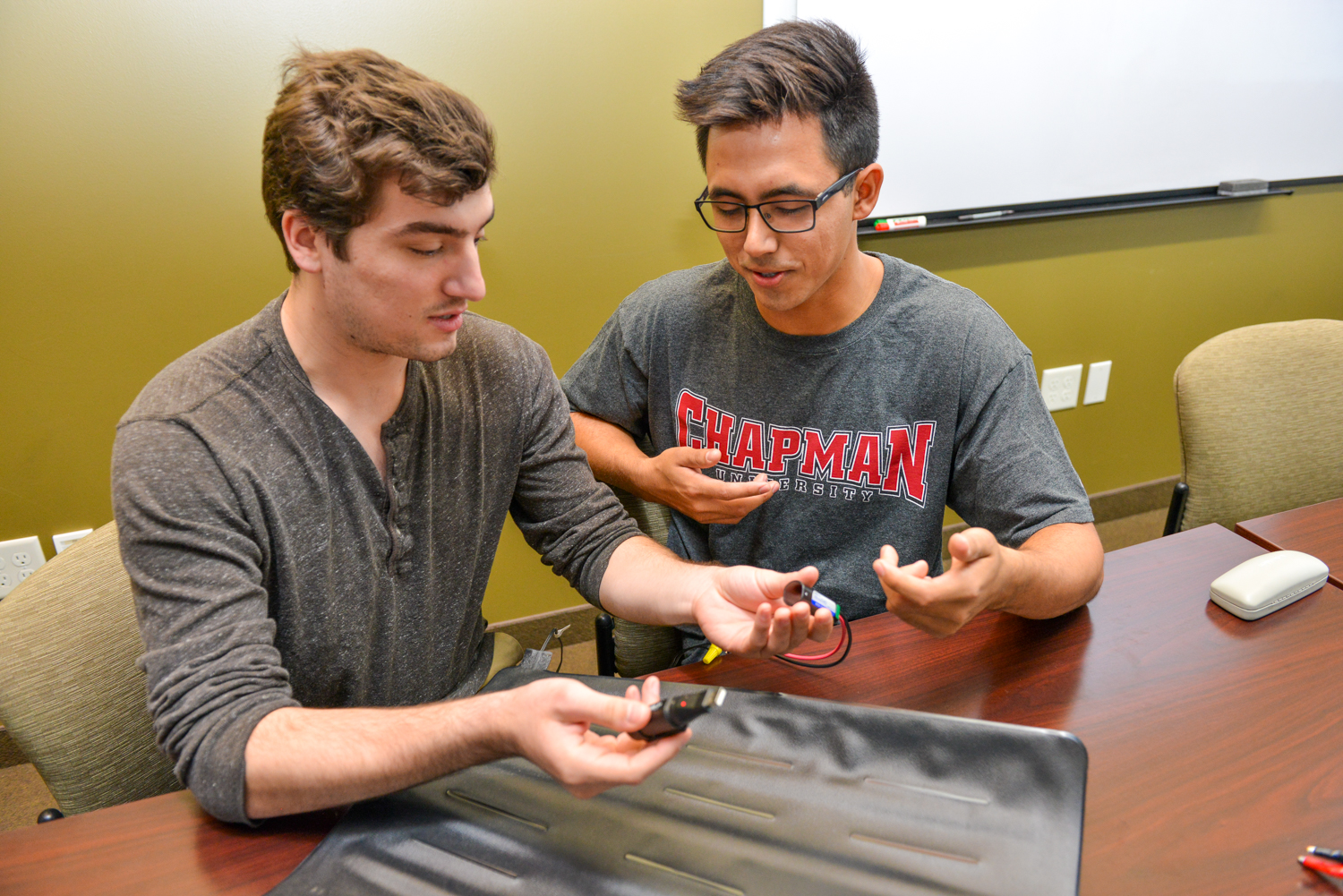 |
The Computational Analysis of Health Behavior Laboratory (CAHB Lab) investigates how real-time sensing technology is changing the framework by which behavioral health interventions are performed. Whereas these processes were once dominated by infrequent measurement collection and static behavior change strategies, technological innovation in mobile sensing devices now open the door for dynamic, ongoing interactions between participants and providers. Our focus is on quantitative techniques that fully leverage the data from mobile sensors in order to improve interventions designs and more precisely detail study outcomes. A wide range of technologies and fields are covered including the assessment of physical activity from accelerometers, the measurement of tobacco smoking via in-home air particle sensors, and the use of vehicular location/motion sensors to gauge aggressive driving.
Dr. Vincent BerardiLocation: Crean Hall
The Onward Lab
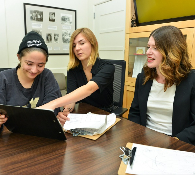 |
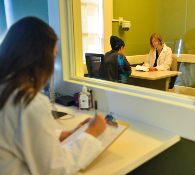 |
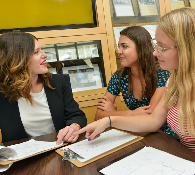 |
The Onward lab is directed by Dr. Amy C. Moors, Assistant Professor of Psychology at Chapman University. This lab investigates a variety of issues at the intersection of gender, sexuality, and relationships with the goal of narrowing health and well-being inequalities. Specifically, this lab focuses on diverse expressions of sexuality and inclusion/belonging in higher ed. Research assistants work individually and collaboratively on a range of projects and activities. Previous research experience is not needed.
Location: Crean HallContext and Aging Research (C.A.R.E) Lab
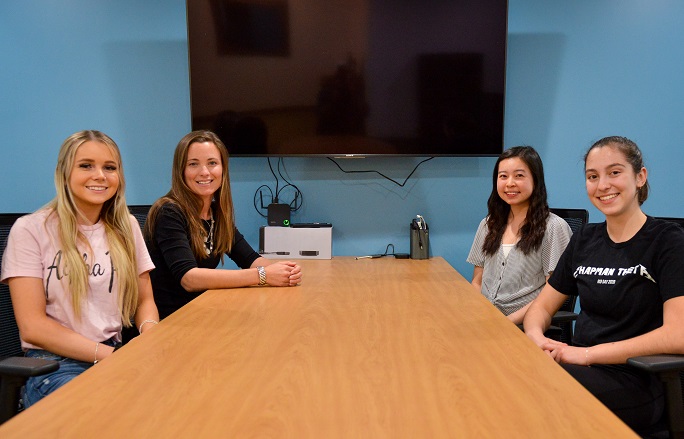 |
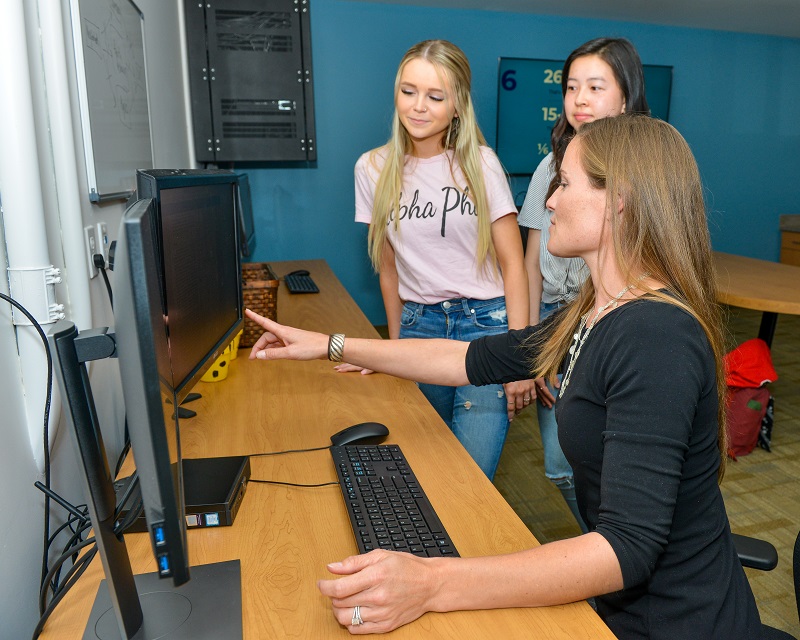 |
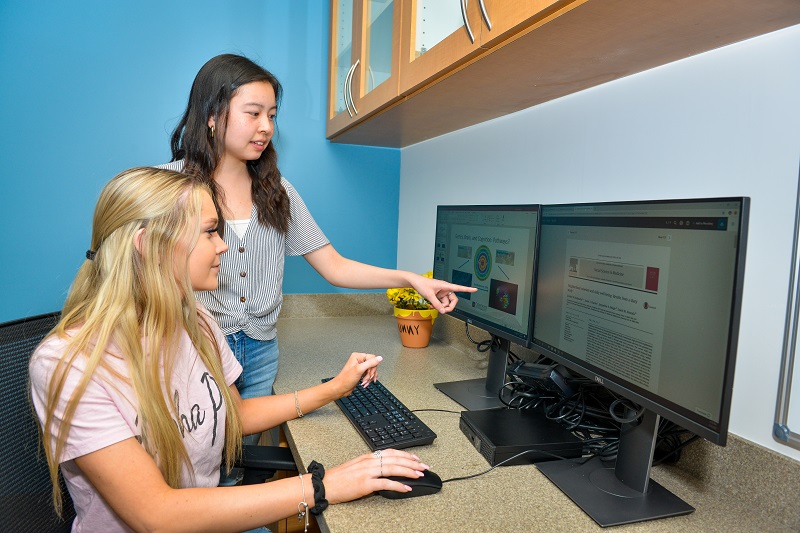 |
Neighborhoods are inherently social environments where people often live, work, and play. People’s subjective experience of these environments, as well as their direct exposure to neighborhood hazards and resources, are associated with a myriad of psychosocial, physical, and cognitive outcomes. Work in this lab involves secondary analysis of multiple large national surveys including rich information about United States adults’ genetic, demographic, health, economic, and neighborhood status.
One line of research tests questions about the degree to which people’s thoughts, feelings, and behaviors partially explain links between neighborhoods and residents’ health. Feeling unsafe in one’s neighborhood, for example, may result in symptoms of anxiety, gradual deterioration of the body’s physiological regulatory systems, and poorer health behaviors, each of which may increase risk for poor health. Another line of research involves the analysis of gene x environment interactions, investigating whether neighborhood hazards ‘trigger,’ and neighborhood resources ‘offset’ genetic risk for adverse health outcomes. Health is considered in broad terms, including psychosocial, physical, and cognitive outcomes as well as global (e.g., cardiovascular disease), episodic (e.g., depressive symptoms), and daily (e.g., negative affect and physical symptoms) aspects of health and well-being.
The primary aims of the research in this lab are to identify modifiable aspects of people’s environments, determine the degree to which these environmental factors are causally linked to health, and to predict whether some people are more vulnerable to adverse neighborhood environments than others. Each of these aims serve the overall purpose of understanding how to live longer lives in optimal health.
Dr. Jennifer Robinette
Location: Crean Hall
Health Science & Physiology Labs
Skeletal Physiology Lab
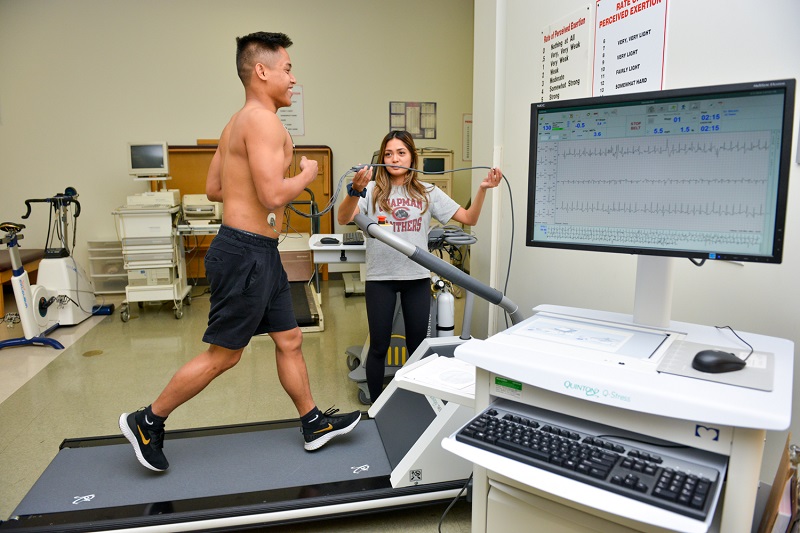 |
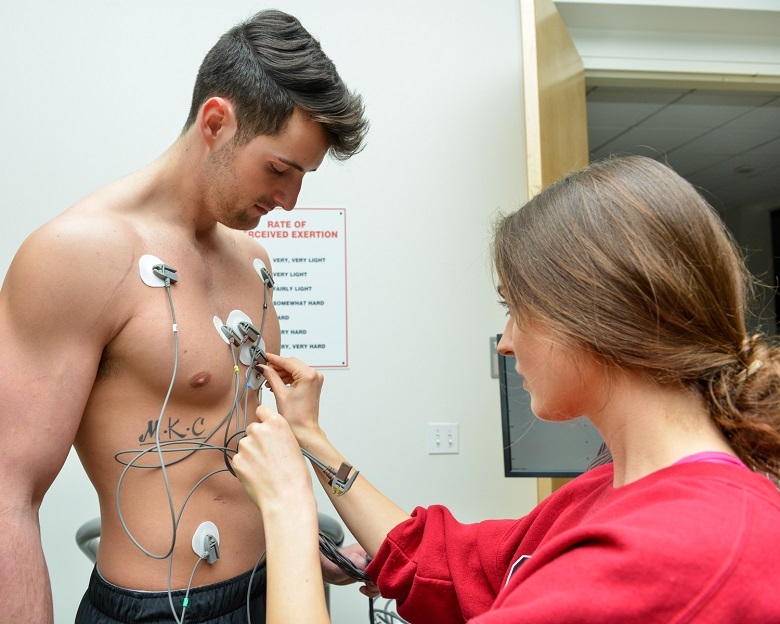 |
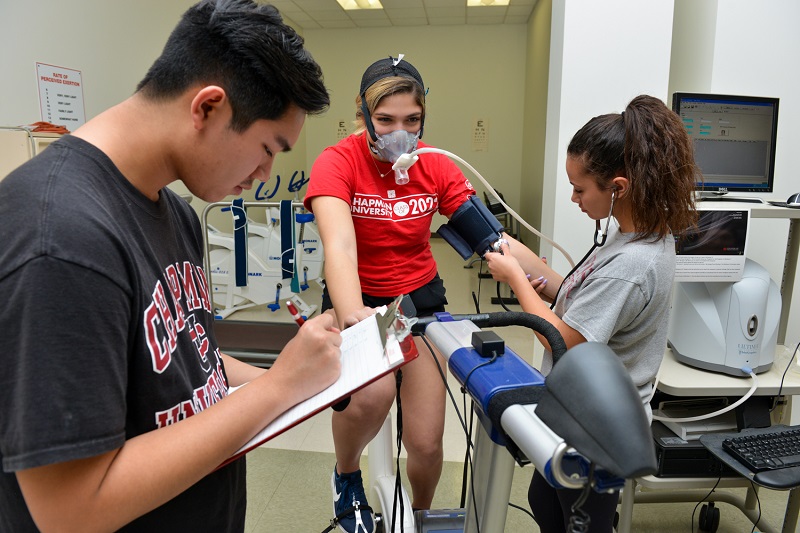 |
Dr. Sumida’s initial research focused on the impact of endurance training on hepatic
gluconeogenesis using the liver perfusion method and isolated hepatocytes. These
investigations revealed that endurance training elevates the glucose production capacity
of the liver that could help to prevent the decline in blood glucose concentration
during prolonged exercise. Dr. Sumida used these same techniques and switched his
research to investigate the sex differences for hepatic gluconeogenesis following
chronic alcohol consumption. This research demonstrated that female animals were
more susceptible to alcohol-induced hypoglycemia compared to males. Recently, his
research has taken a different path. He currently investigates the impact of resistance
training on bone formation during the growth period. These studies are revealing
the existence of an exercise threshold for bone formation as well as sex differences
in the training-induced response.
Dr. Kenneth Sumida
Older Adults’ Vulnerability and Resilience to Disasters Lab
The goal of the lab is to examine vulnerability, resilience, and disparities related to disasters and more generally climate change, with a focus on older adults and intersectional vulnerabilities with a convergent perspective. The lab focuses on critical equity-related problems such as access and response to warnings, mitigation, the recovery process, and disparities in health consequences in the context of disasters.

Dr. Zhen Cong has led multiple interdisciplinary teams and conducted a series of theory-based
and data-driven research projects, including theory development, longitudinal data
collection, data integration, and multilevel and system analysis.
Read about Dr. Cong's latest research on hurricanes and her NSF grant here.
Location: Crean Hall
Physical Therapy Labs
Neuromechanics of Human Movement Laboratory
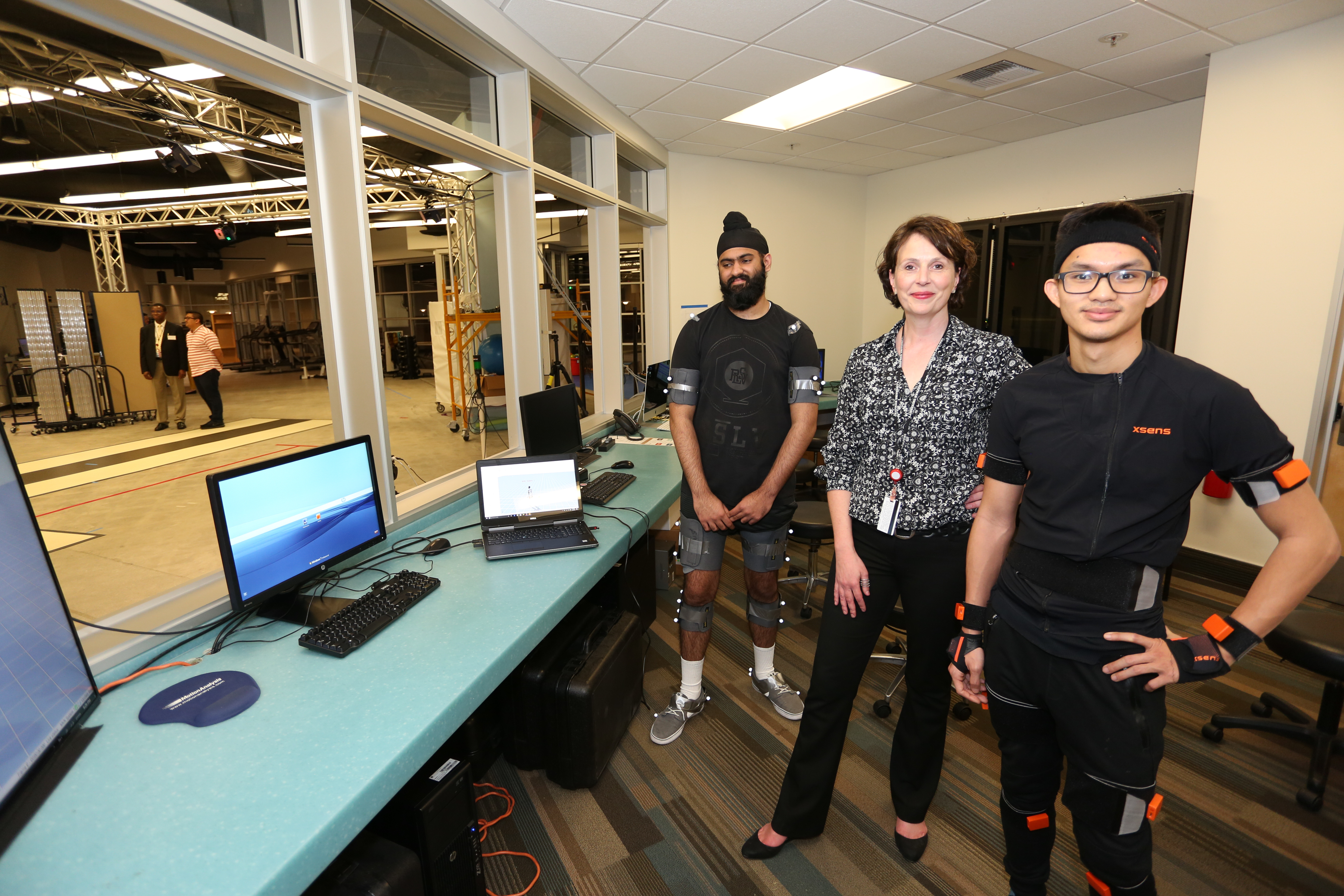 |
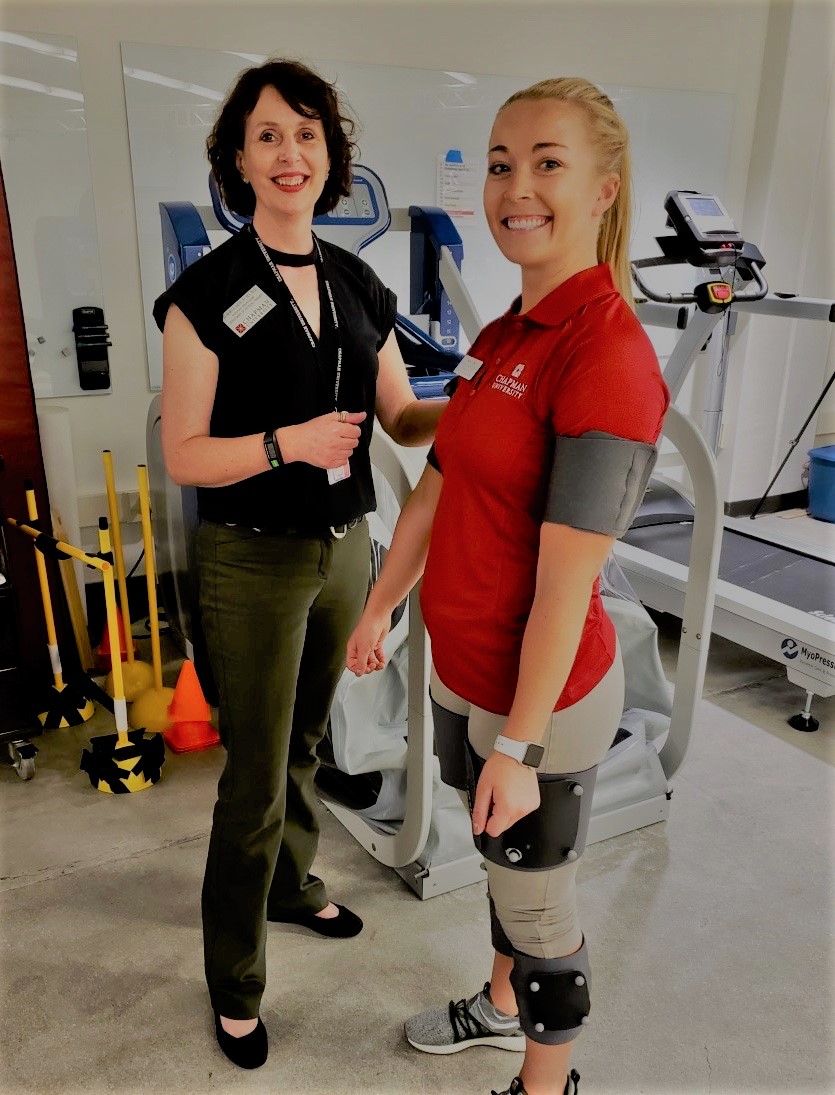 |
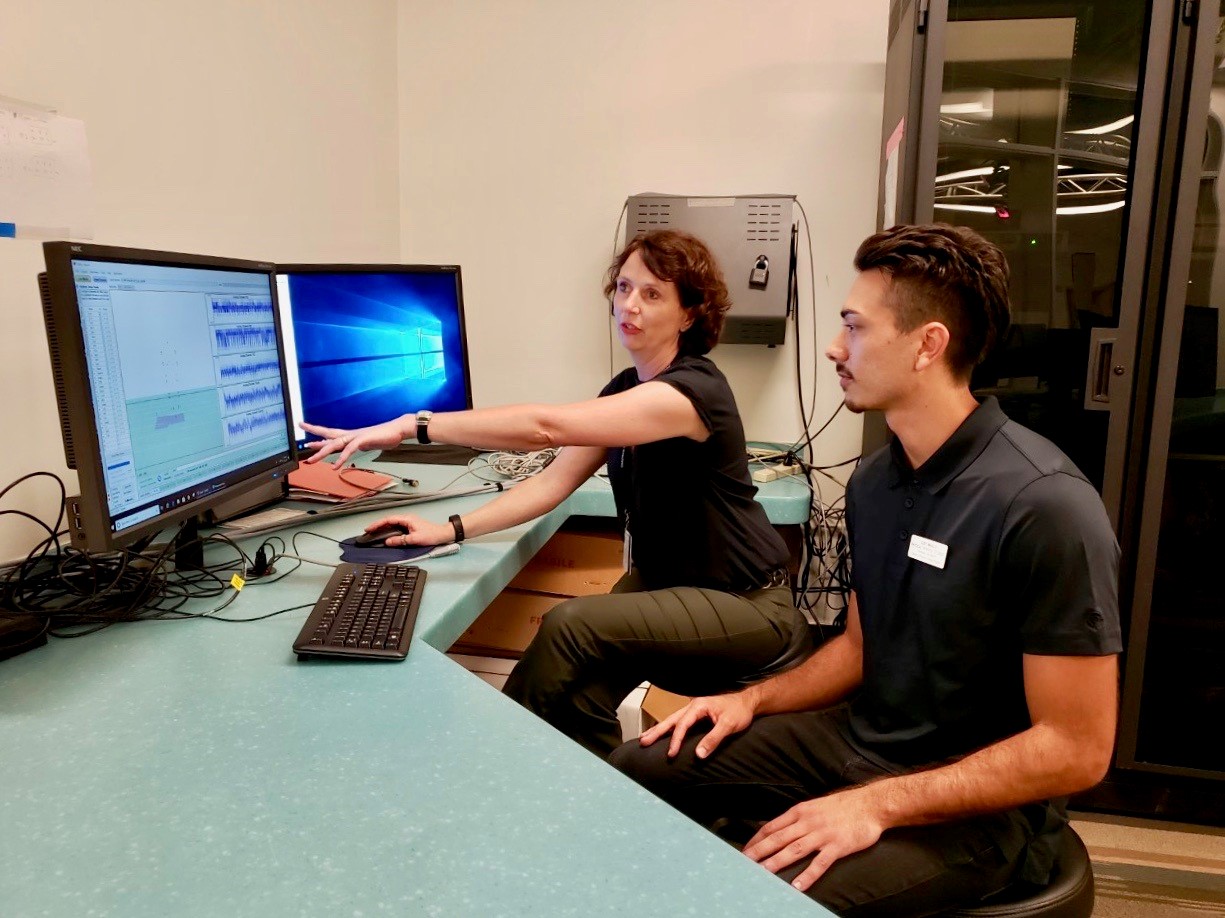 |
Dr. Jo Armour Smith’s program of research investigates how postural control of the
trunk is adapted in response to pain, aging and skill training, and the mechanisms
underlying these adaptations. Her current research focuses on the adaptations in trunk
control that are associated with persistent low back pain, as these adaptations may
contribute to the recurrence of symptoms. She uses a neuromechanical approach that
blends biomechanics and neuroscience to study how the nervous system and musculoskeletal
system interact to produce movement in healthy individuals and individuals with back
pain. Research in the Neuromechanics of Human Movement Laboratory (NOHMLab) explores
trunk muscle activity, trunk motion, and associated cortical function during controlled
postural perturbations and during more complex functional tasks like walking and turning.
Initial work in the NOHMLab will examine the relationship between cortical function
and impairments in postural control in individuals with persistent low back pain.
Translational studies will also quantify changes in cortical function in response
to physical therapy intervention. Clinical studies will then investigate the effectiveness
of motor learning exercise interventions for enhancing postural control in individuals
with acute and persistent low back pain, with the ultimate goal of increasing the
understanding of mechanisms underlying the transition from acute to persistent back
pain and enhancing physical therapy treatment of this disorder.
Dr. Jo Armour Smith
Location: Harry and Diane Rinker Health Science Campus
Gait Rehabilitation and Research Lab (GRRL)
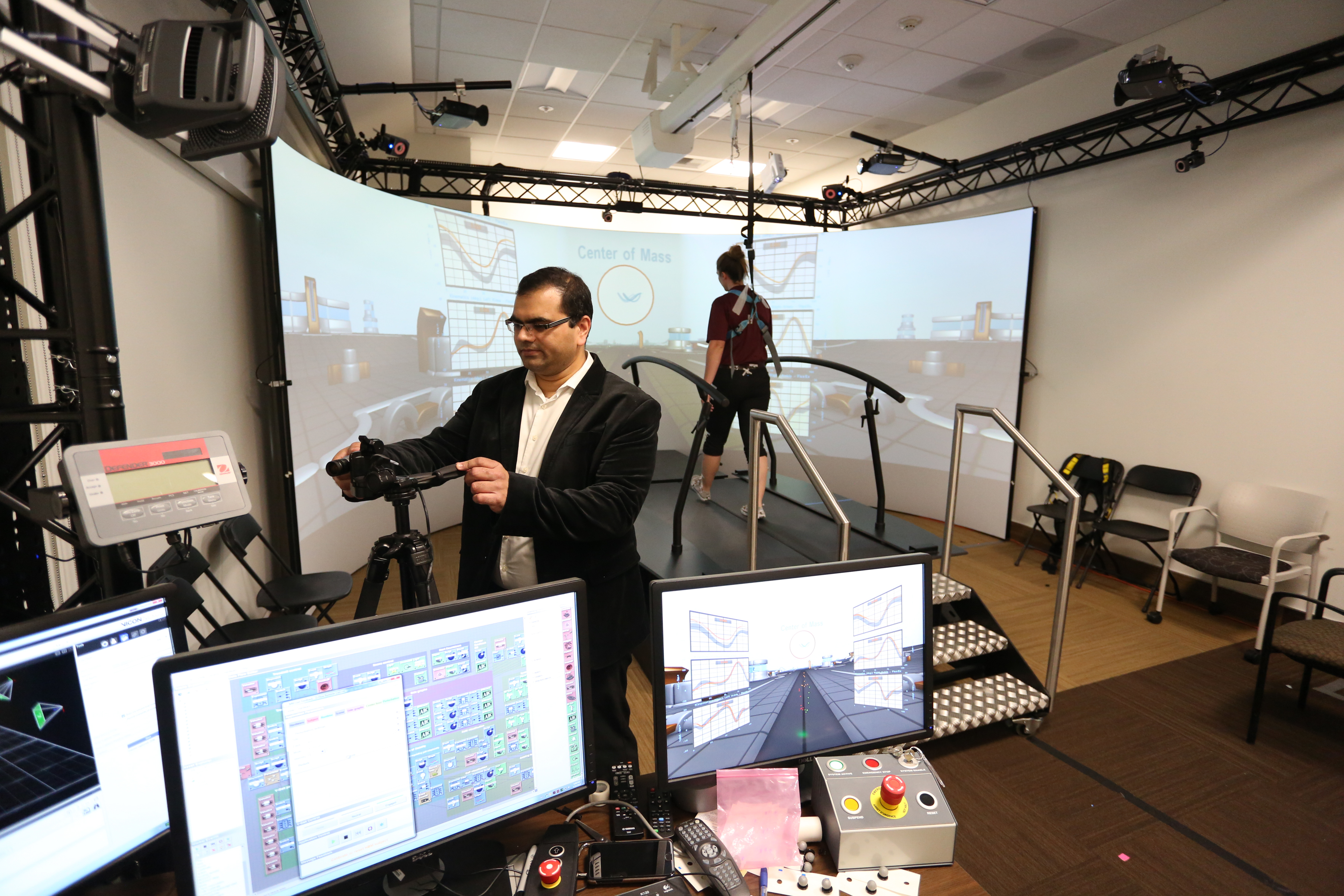 |
 |
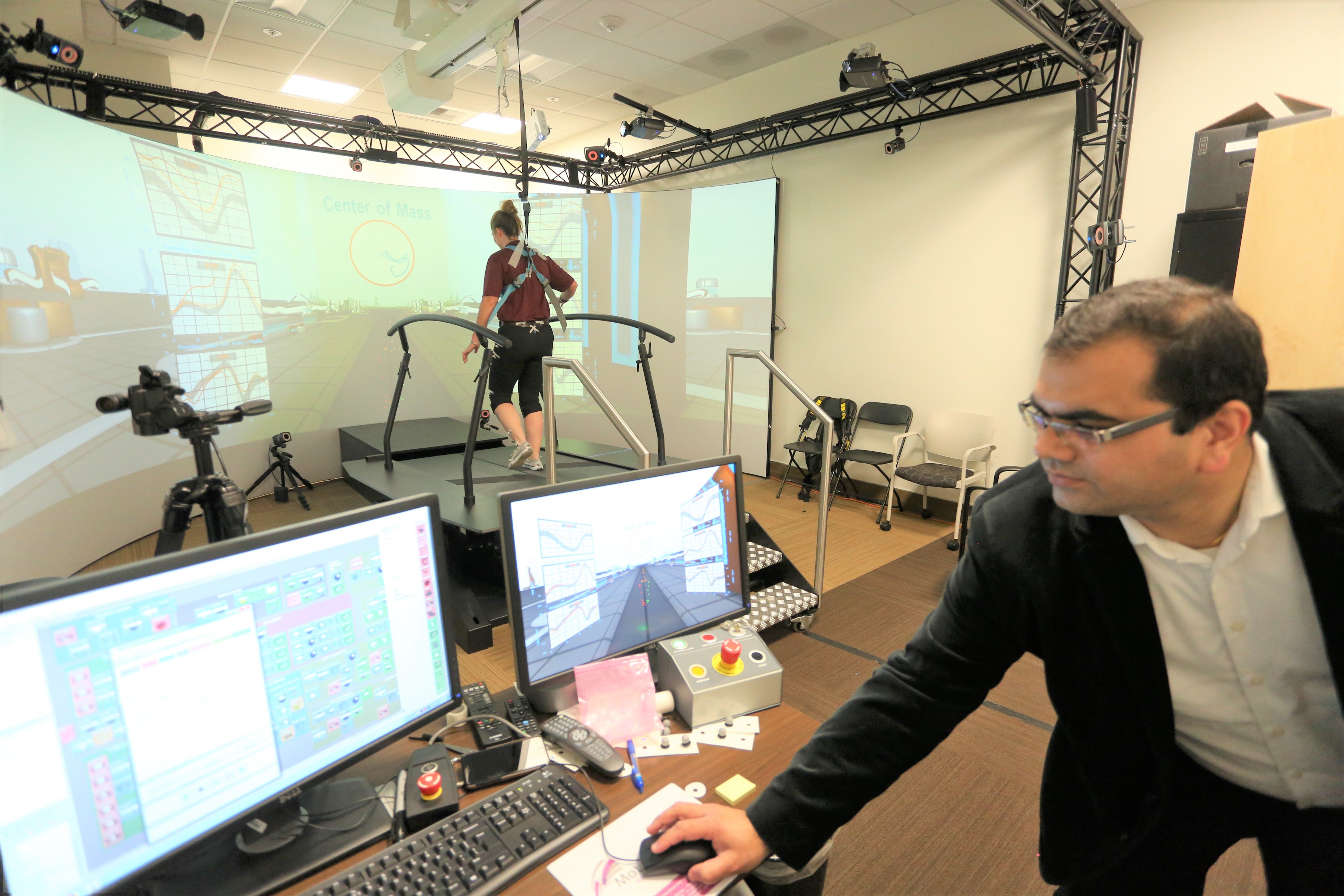 |
Gait Rehabilitation and Research Lab (GRRL) investigates intervention solutions for fall prevention. Our research investigates the effectiveness of perturbation training for enhancing postural and dynamic stability in individuals with neurological or musculoskeletal disorders. We also design fall assessment portable tools such as smartphone apps and use inertial sensors in understanding movement characteristics. Our research involves understanding Activities of Daily Living (ADL’s) using inertial sensors. Research in Gait Rehabilitation Research Lab explores stability and stride interval complexity due to controlled gait and postural perturbations and during more complex cognitive and functional tasks while walking. The ultimate goal of our research is to improve quality of life of patient population by introducing interventions for movement disorders.
Dr. Rahul SoangraLocation: Harry and Diane Rinker Health Science Campus
Telerehabilitation, Robotic Therapy, and Augmented Reality Games for Stroke Recovery
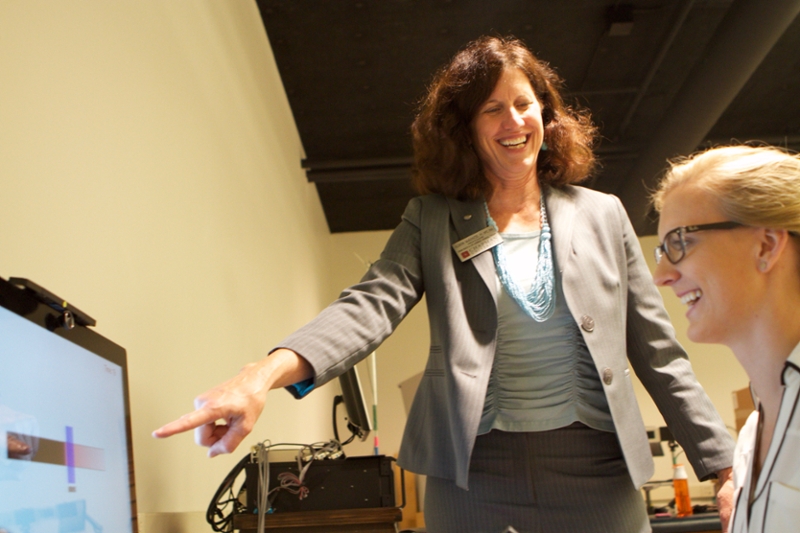 |
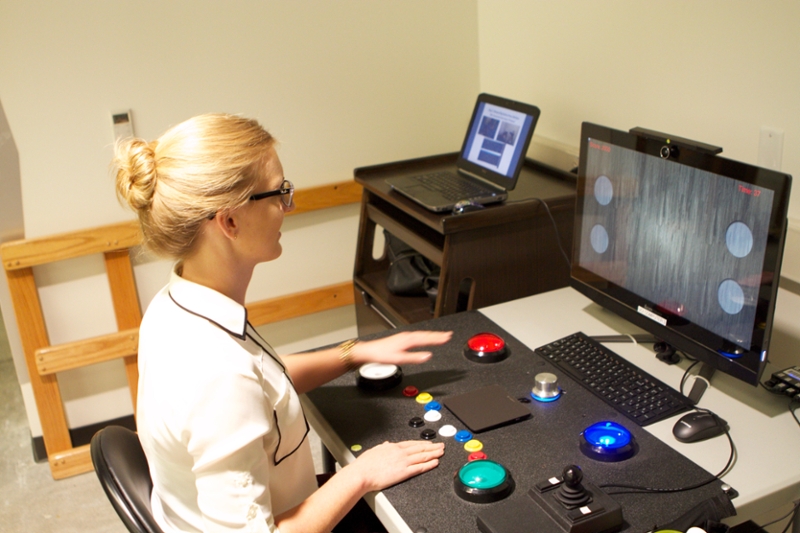 |
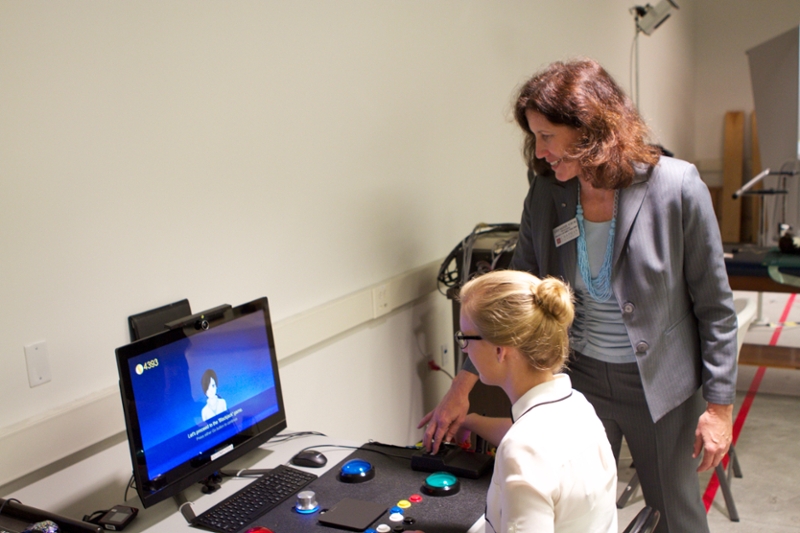 |
As part of a series of collaborative clinical research studies with Dr. Steven Cramer’s
Lab at UCI, Dr. McKenzie and Chapman DPT students have been involved in the inception
and implementation of innovative approaches to stroke rehabilitation that incorporates
cutting edge technology into emerging models of neurorehabilitation for stroke. The
interdisciplinary research team includes neurologists, post-doctoral fellows, M.D./Ph.D.
and Ph.D. students, physical and occupational therapists, bioengineers and bioengineering
graduate students, computer scientists, and undergraduates.
Dr. Alison L. McKenzie
Location: Harry and Diane Rinker Health Science Campus
Gait Behavior Lab
Dr Natalia Sanchez’s research aims to understand the individual factors that shape gait behaviors in healthy and pathological populations during changing walking demands. For this research, the lab integrates experimental methods in motor control, biomechanics, and physiology and machine learning methods for analyses. The long-term goal of our research program is to identify individual-specific factors that can serve as intervention targets during therapies aimed at restoring gait in people after injury, with special emphasis on survivors of cerebrovascular accident or stroke. Dr Sanchez’s research has been funded by the American Heart Association and National Institutes of Health.
Dr. Natalia Sanchez
Location: Harry and Diane Rinker Health Science Campus
Clinical and Translational Research Lab (CTRL)
Dr. Brent Harper's research investigates factors influencing postural control and performance in healthy and injured individuals. By understanding how the movement system reweights sensory information required for balance and skilled movements, interventions can be developed and translated into clinical practice. Current research utilizes portable tools such as inertial sensors and force plates to understand movement in the lab and clinical environments regarding how sensory information influences and changes in response to ankle injury or concussion, the potential mechanisms underlying postural control behavioral adaptations, and how pain influences movement. Our research aims to provide real-world assessments and interventions that translate into clinical practice to improve our patients' and clients' quality of life while maximizing function.
Dr. Brent Harper
Location: Harry and Diane Rinker Health Sciences Campus
Speech-Language Pathology Labs
NeuroCognitive-Communication Lab
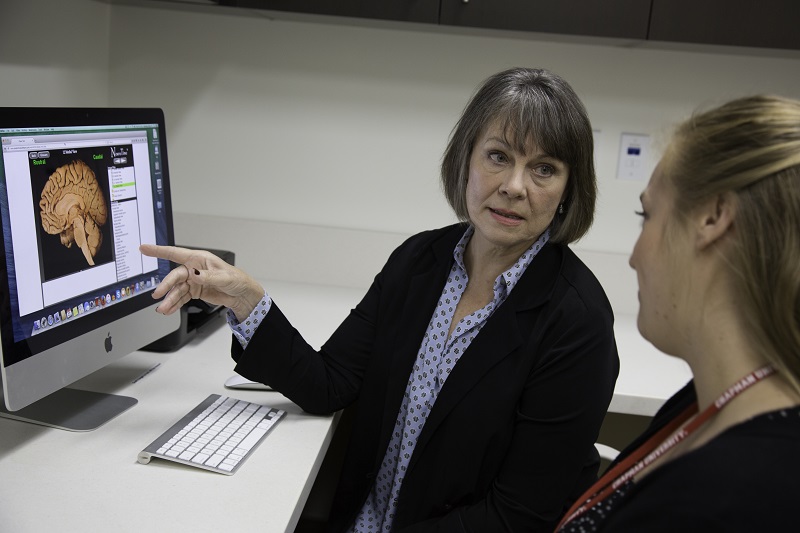 |
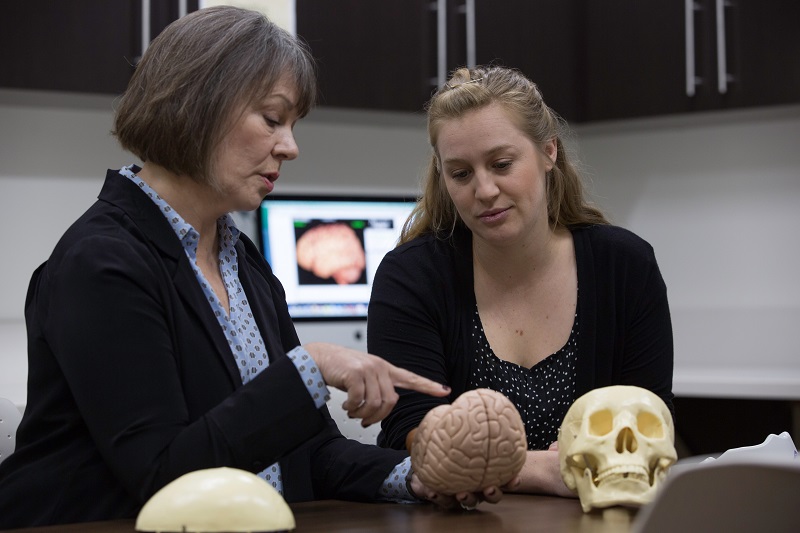 |
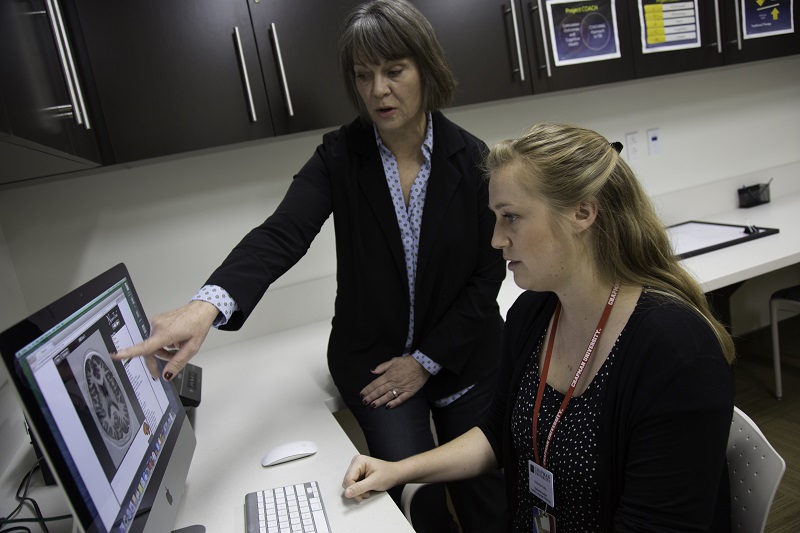 |
Over 2 million individuals sustain a traumatic brain injury (TBI) in the US annually.
The increase in public awareness of sports-related and war-related TBI has brought
this epidemic to the forefront. Most of these are concussions, yet many individuals
experience life-changing cognitive, communication, and psycho-social consequences
that effect their ability to return to school, go to work, resume their family roles,
and participate fully in their community.
Despite this increase in public awareness, there remains much to learn about how TBI
impacts ones life. In the NCCL we investigate the cognitive and communication disorders
that result from brain injury using quantitative and qualitative methods. It is widely
accepted that memory, attention and executive functions disorders are the result of
TBI, including concussion. How these cognitive disorders impact everyday life and
how speech-language pathologists can best evaluate and treat these cognitive impairments
is the focus of the NCCL. Based on the World Health Organization’s International Classification
Framework, Dr. Kennedy and graduate students are researching three areas that impact
the ability to return to home, work and college:
1. The validation of the use of interviews and surveys as assessment procedures that
document everyday cognitive and communication disorders associated with brain injury,
including those with post-concussion syndrome;
2. The investigation of the effectiveness of dynamic coaching, developed by Dr. Kennedy,
as an approach for improving outcomes of returning to school and returning to work
after injury;
3. The translation of research evidence into best clinical practices for assessing
and treating individuals with brain injury.
Dr. Mary R.T. Kennedy
Location: Harry and Diane Rinker Health Science Campus
Early Language and Cognitive Development Lab
Mary K. Fagan is an assistant professor in Communication Sciences and Disorders. She received her Ph.D. in Developmental Psychology from the University of Missouri and was a NIH postdoctoral fellow at Indiana University, School of Medicine. She has a master’s degree in Speech-Language Pathology. Dr. Fagan’s research centers broadly on infant development and investigates patterns and predictors in speech and language development, mother-infant interactions, and early exploration. In addition, she is interested in cognitive and pre-linguistic development in infants with hearing loss and in identifying interventions that promote word learning and vocabulary development in infants with profound hearing loss before and after they receive cochlear implants.
Dr. Mary Fagan
Location: Harry and Diane Rinker Health Science Campus
Communication and Language Acquisition Lab
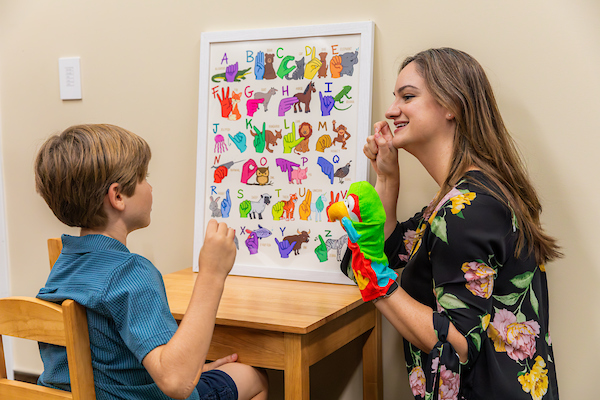
Dr. Brittany Lee's lab studies communication and language acquisition, with a focus on improving speech-language pathology services to support language and literacy development among Deaf and Hard-of-Hearing children. We use cognitive and translational science to support a mission of language and literacy for all.
Click here to learn more
Dr. Brittany Lee
Location: Harry and Diane Rinker Health Science Campus
Cognition, Language and Plasticity Lab
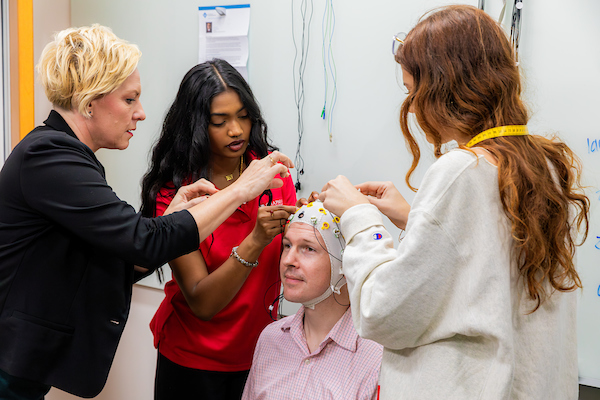
Dr. Zed Sehyr's research focuses on exploring the neuroplasticity of pathways dedicated
to language and visual processing as a consequence of diverse visual and sensory experiences.
Language, whether spoken or signed, is a focal point of our investigations. They place
a particular emphasis on the study of sign languages and their users, recognizing
their pivotal role in advancing our understanding of universal aspects of human language
and communication.
Dr. Sehyr's research sheds light on the intricate networks responsible for language
processing. Moreover, these findings have the potential to assist the development
of more intelligent machines that can interact with humans in a more human-like manner.
Finally, Dr. Sehyr's research findings also hold promise for clinical practice, as
they can inform strategies for language recovery following brain injuries.
Dr. Zed Sehyr
Location: Harry and Diane Rinker Health Science Campus
